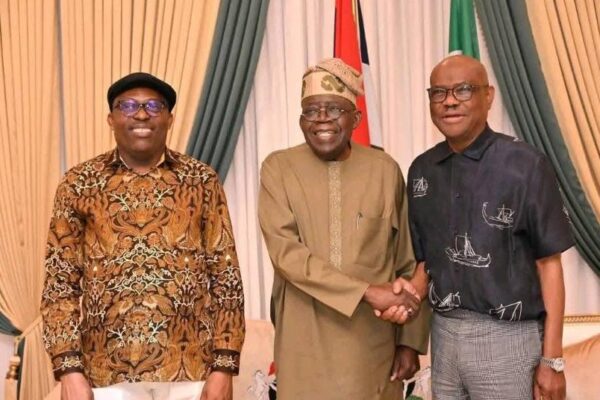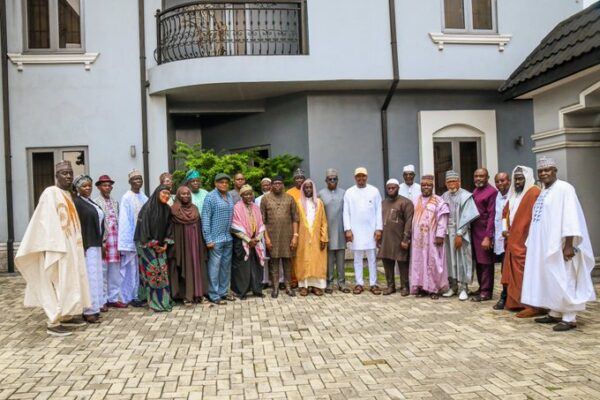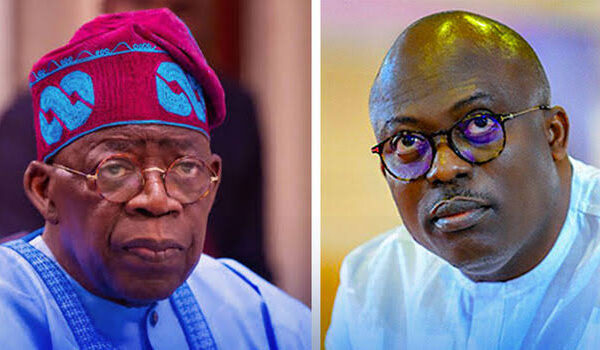Socio-Economic Rights and Accountability Project (SERAP) has filed a lawsuit against President Bola Tinubu over “the unlawful suspension of democratically elected Governor, Deputy Governor, and Members of the House of Assembly of Rivers State while exercising his constitutional powers to proclaim a State of Emergency in the state.” The suit is brought by Yirabari Israel Nulog; Nengim Ikpoemugh Royal; and Gracious Eyoh–Sifumbukho, who are members of SERAP Volunteers’ Lawyers Network (SVLN) in Rivers state. The plaintiffs are registered voters and voted in the 2023 general elections. Joined in the suit as Defendants are the Attorney General of the Federation and Minister of Justice, Mr Lateef Fagbemi, SAN and Vice Admiral Ibok-Ete Ibas (Rtd). In the suit number FHC/ABJ/CS/558/2025 filed last Friday at the Federal High Court, Abuja, the plaintiffs are seeking: “an order setting aside the suspension of the democratically elected officials in Rivers State by President Tinubu while proclaiming a state of emergency in the state.” The plaintiffs are seeking: “an order setting aside the appointment of Vice Admiral Ibok-Ete Ibas (Rtd) as the Sole Administrator of Rivers State.” The plaintiffs are also seeking: “a declaration that by virtue of section 1(2) of the Nigerian Constitution 1999 (as amended), Nigeria shall not be governed, nor shall any person or group of persons take control of the Government of Nigeria or any part thereof, except in accordance with the provisions of the Constitution.” In the suit, the plaintiffs are arguing that: “The rule of law would be a mere figure of speech if the people’s right to participation can be arbitrarily suspended or violated.” The suit filed on behalf of the plaintiffs by their lawyer Ebun-Olu Adegboruwa, SAN read in part: “Democracy is an inherent element of the rule of law. Nigeria’s democracy ought to have as its foundation respect for human rights and the rule of law. “The suspension is entirely inconsistent and incompatible with the letter and spirit of the Nigerian Constitution 1999 [as amended] and the country’s obligations under article 13 of the African Charter on Human and Peoples’ Rights, and articles 2, 3 and 4 of the African Charter on Democracy, Elections and Governance. “The combined provisions of sections 1(2), 14(1)(c), 176(1) (2) and 305(1) of the Nigerian 1999 Constitution create a delicate balance of rights and responsibilities, balancing the exercise of the President’s power against the people’s right to participation in their own government, and the notion of respect for the rule of law. “Together, these Constitutional provisions presume that Presidential Powers under section 305 are to be exercised fairly and the duty of fairness requires that the people’s right to participation and democracy should be upheld even in the context of a declaration of state of emergency in Rivers State. “The combined effect of the provisions of sections 1(2), 14(1)(c), 176(1) (2) and 305(1) of the 1999 Constitution is that the suspension of democratically elected officials in Rivers state is unlawful and unconstitutional. “Democracy works best when everyone participates. The right to participation is the bedrock of any democratic society. “The suspension of the democratically elected officials in Rivers state has seriously undermined the ability of the Plaintiffs to participate more effectively in their own government, and the credibility and integrity of the country’s electoral process, as well as the notion of the rule of law. “The rule of law ought to be protected to ensure that persons and institutions operate within the defined ambit of constitutional and statutory limitations. “Where agencies of government are allowed to operate at large and at their whims and caprices in the guise of performing their statutory or constitutional duties, the end result will be anarchy and authoritarianism, leading to the loss of constitutionally guaranteed freedom and liberty. “Section 305 of the 1999 Constitution is neither absolute nor superior to other provisions of the Constitution. Rather, it is expressly made subject to other constitutional provisions. “The phrase ‘Subject to’ as a legislative device is used in a Constitutional provision or statutory enactment to make the provision of the section inferior, dependent on, or limited and restricted in application to the Section to which they are made subject to.” The plaintiffs are also seeking the following reliefs: No date has been fixed for the hearing of the suit.






